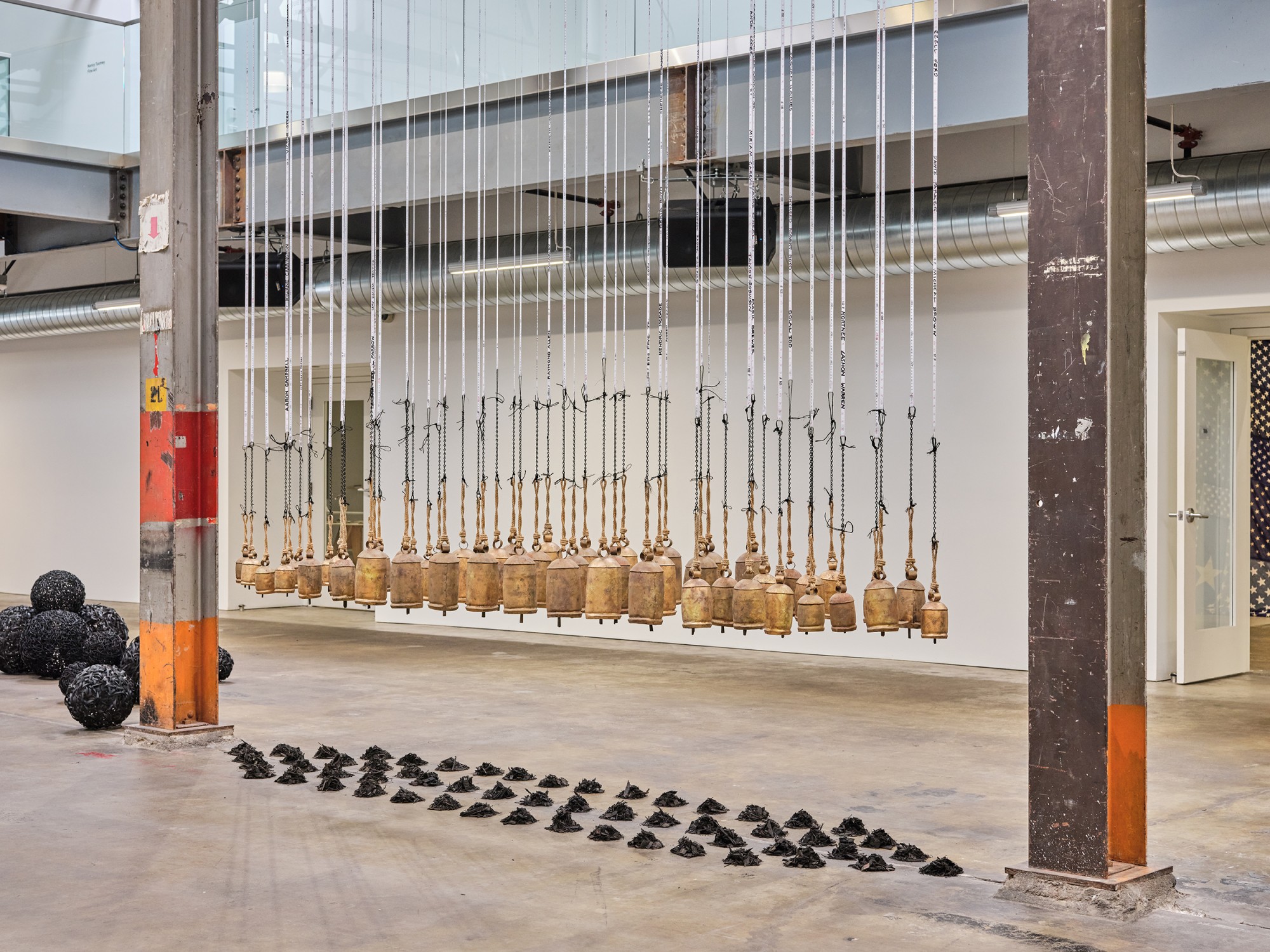1275 Minnesota St /
The Atrium
Toni Scott: The Measure of Things: I Know Why the Caged Bird Sings
The measurements of inequality are presented in the shape of a canoe and the chains of systemic racism are exposed, as bells ring the truth, and the fallen are memorialized.
Minnesota Street Project Foundation is pleased to announce the opening of California Black Voices Project grantee Toni Scott’s, The Measure of Things: I Know Why the Caged Bird Sings. The show is the second of five exhibitions by the California Black Voices Project inaugural grantees Indira Allegra, Dr. Lizzetta LeFalle-Collins, Rashaad Newsome, and Leila Weefur.
The Measure of Things: I Know Why the Caged Bird Sings memorializes Black and Brown lives lost unjustly and addresses systemic racism in the United States of America. Scott’s artwork title and concept are inspired by Maya Angelou’s, I Know Why the Caged Bird Sings, whose book title was inspired by the third stanza of Paul Laurence Dunbar’s poem,"Sympathy." Dunbar’s poem implies that although the caged bird may never have experienced freedom, he still sings of it because he was created for freedom.
"I know why the caged bird sings, ah me,
When his wing is bruised and his bosom sore, —
When he beats his bars and he would be free;
It is not a carol of joy or glee,
But a prayer that he sends from his heart's deep core,
But a plea, that upward to Heaven he flings—
I know why the caged bird sings!"
Scott’s installation takes the form of a suspended canoe, created with measuring tapes hung at varying lengths, from each of which extends a chain and bell. Notes Scott, “The elevation of the chains and measuring tape represent the importance to elevate discussion and the immediate action needed to address racism in this country. The bells are rung in remembrance of each life lost, and to call to attention racial disparities and the importance of equality.”
Scott moves the viewers aerial focus of the installation to the ground, where she has placed mounds of charred black bark wood shavings under the bells, illustrative of the collective, far too many to count, Black and Brown lives lost to racism. Building upon to the physical and visual experience of her installation, Scott has further demarcated the space around her artwork through the placement of dozens of free birds and caged birds and an auditory element to bring bird songs directly into her piece.
“Both Dunbar’s and Angelou’s writing,” Scott states, “epitomize the intangible but impactful cages set upon the many who are oppressed, entrapped, and long for freedom.”
The exhibition will be free and open to the public at 1275 Minnesota Street Project in the Atrium and on Adjacent, the Project's virtual home for art.
Learn more about the Minnesota Street Project Foundation.
